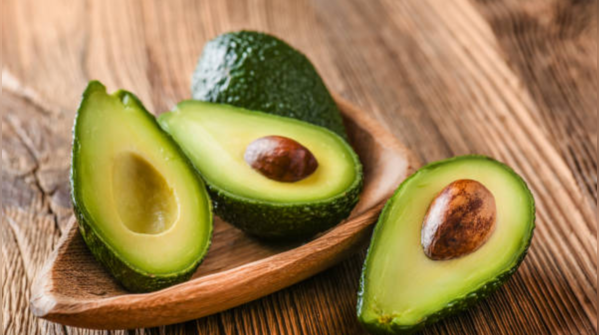- News
- lifestyle
- health-fitness
- diet
- What is the healthiest part of an avocado? (no it's not just the flesh)
What is the healthiest part of an avocado? (no it's not just the flesh)

Do you discard avocado after having the flesh? Read this
Avocados are the new trend among foodies. From guacamole to having sliced avocados on toast, this fruit has amazed and impressed all with its unique and rich texture. As a general practice you must be eating the flesh and throwing away the pit and the skin, but do you know which is the healthiest part of the avocado? Read this article to learn more.

The creamy flesh of avocado is rich in monounsaturated fats
The most commonly consumed part of the avocado is its flesh and this is packed with heart-healthy monounsaturated fats, particularly oleic acid which support healthy cholesterol levels, reduce inflammation, and support heart health. The flesh of an avocado is rich in dietary fiber, which is essential for maintaining good digestive health. One medium avocado provides around 10 grams of fiber, supporting gut bacteria and promoting regular bowel movements.
Indian Railways washes blankets monthly: Health risks for train travelers

The rough skin of avocado is rich in antioxidants
Although avocado skin is not typically consumed due to its tough texture, it contains a concentration of beneficial compounds. The skin of an avocado is rich in antioxidants like carotenoids and polyphenols. These compounds help neutralize free radicals, which can damage cells and lead to chronic diseases such as cancer and heart disease. While avocado skin is not typically eaten, some research suggests that the extracts from the skin have antimicrobial and antifungal properties, which could be beneficial for creating natural preservatives or skin treatments.

Avocado pits are rich in phytochemicals
The pit, or the thin layer between the flesh and the seed, is rich in phytochemicals and fiber. Although it’s difficult to separate from the seed, it contains some beneficial compounds such as tannins and flavonoids, which have anti-inflammatory and antioxidant properties.

Do you know avocado seeds are nutritious too?
The avocado seed is often discarded, but it has potential health benefits. Studies suggest that the avocado seed contains a significant amount of antioxidants, more than the flesh which help fight oxidative stress in the body, lowering the risk of chronic diseases. The seed is also rich in soluble fiber, which is essential for good digestion and helps regulate blood sugar levels, making it beneficial for those at risk of diabetes or heart disease.
Some studies have found that the phytochemicals in avocado seeds may have anti-inflammatory effects, helping to reduce inflammation in the body. The seed contains compounds that may help lower cholesterol levels, particularly by reducing low-density lipoprotein (LDL), or “bad” cholesterol, which contributes to cardiovascular disease.
To utilize the seed, it needs to be dehydrated and finely ground. Its bitter taste means it’s best consumed in small amounts, often mixed into smoothies, baked goods, or sprinkled over salads.

Avocado nutritional value decoded
Avocados are nutrient-dense fruits packed with essential vitamins, minerals, and healthy fats. Rich in heart-healthy monounsaturated fats, particularly oleic acid, avocados help reduce bad cholesterol (LDL) and boost good cholesterol (HDL), promoting cardiovascular health. They are also a good source of fiber, aiding digestion and promoting a feeling of fullness, which can support weight management.
Nutritionally, avocados are high in potassium—more than bananas—which helps regulate blood pressure and fluid balance in the body. They provide significant amounts of vitamins C, E, K, and B6, which contribute to immune support, skin health, and energy metabolism. Additionally, avocados are rich in antioxidants, like lutein and zeaxanthin, which are beneficial for eye health.
Their combination of fats, fiber, and nutrients makes avocados a versatile and healthy addition to a balanced diet, supporting overall well-being from heart health to digestion and beyond.

How to eat avocado
Avocados can be enjoyed in many delicious ways. Mash them into guacamole with lime, salt, and spices for a classic dip or spread. Slice them onto toast with olive oil and seasoning for a quick breakfast. Add them to smoothies for a creamy texture, or blend them into salad dressings. They’re great diced in salads, topped on tacos, or stuffed with eggs for a baked treat. You can even incorporate them into desserts like avocado brownies or mousse for a rich, healthy twist. Their creamy, mild flavor makes them versatile for both savory and sweet dishes.

Is avocado good for skin?
Yes, avocado is great for the skin. It is rich in healthy fats, particularly omega-3 and omega-6 fatty acids, which help maintain skin moisture and improve elasticity. Avocados are packed with vitamins E and C, which are antioxidants that protect the skin from oxidative damage and promote collagen production, reducing wrinkles and fine lines. Their anti-inflammatory properties soothe irritated skin, while their natural oils nourish and hydrate. Avocado can be used in both diet and topical applications to enhance skin health, making it softer, smoother, and more radiant.









